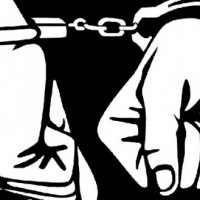Recently, a government corporation established as “Federal Prison Industries, Inc” (more commonly known as UNICOR), has gained attention in the public eye. Although UNICOR has been in existence since 1934, I first learned of its existence just last week while watching The Colbert Report. On October 7th, the Huffington Post ran this article criticizing UNICOR for undercutting small business in America.
What is UNICOR?
UNICOR is an American federal government run corporation operating under the mandate “to provide employment and training for inmates in the Federal Prison System while remaining self-sufficient through the sale of its products and services.” UNICOR employs inmates at wage rates far below the minimum wage from 23 cents per hour to no more than $1.15 per hour. The corporation provides products and services in various industries such as clothing & textiles, electronics and furniture. There are currently 14,200 inmates employed with UNICOR, 8% of the prison population eligible to carry out the work. All of this information can be found at www.unicor.gov.
The Economics of UNICOR
As UNICOR has gained visibility it has outraged some because it undercuts other businesses who compete for the work given to UNICOR by getting away with paying such incredibly low wages. When viewed in full light of economic analysis, the trouble with UNICOR runs much deeper than what has been expressed. The following is a list of points I feel all US taxpayers ought to be aware of in putting together the serious violation of economic freedom embodied in UNICOR.
1. US Incarceration costs
The US imprisons approximately 2.4 million people. CBS news reports that while the US has 5% of the world’s population, it has 25% of the world’s prisoners. They also report that taxpayers spend $63.4 billion a year to imprison people. That works out to an average of $31,307 per year for one inmate. While imprisoning dangerous criminals is typically viewed as a legitimate use of taxpayer money, the extraordinary rate in America still ought to raise alarm. Is there a legitimate reason why our incarceration costs are so astronomical? There is a real problem here which at this point is impossible
to ignore. In fact, CBS reports that prison funding has become a national issue that has Democrats and Republicans both working to cut costs and imprison rates.
2. US minimum wage laws
Nearly any economist you ask, regardless of his school of thought, will tell you that minimum wage laws increase unemployment. But most people are not economists. Most people believe that if a politician dictates to business the minimum amount they are allowed to pay for labor, the common laborer will benefit. The reality is that businesses will not employ as many people if they must pay higher wages than they would otherwise. For an explanation of why, see our article “Minimum Wage Distorts Reality”. Nonetheless, America has a minimum wage of $7.25 per hour. In establishing this, the federal government effectively increases the amount of unemployed Americans.
3. UNICOR is employing prisoners at wages below the minimum wage
While the federal minimum wage is $7.25 per hour, UNICOR does not employ prisoners for any more than $1.15 per hour. By employing prisoners who cannot work on the market, UNICOR is able to get cheap labor unavailable to any privately run American business. Thus the government-run UNICOR does not pay anywhere near the amount of labor costs as a private company legally must. With lower production costs, UNICOR can charge its customers prices far below those of competing private businesses. Hence UNICOR is able to undercut their competitors and decrease the amount of
employment available to law abiding citizens in the private sector.
4. The biggest customer of UNICOR is the federal government
To me, this is the most disturbing and unjust aspect of UNICOR. 84% of UNICOR’s revenue comes from purchases made by the federal government through departments of defense, homeland security, justice and others. The department of defense alone supplies 47% of UNICOR’s revenue. The Economist reports that the US pays $700 billion for military spending. This represents 4.8% of GDP, a higher percentage than any other nation in the world. This money is taken from law abiding taxpayers. Some of this money is used to purchase UNICOR products and therefore pay UNICOR’s laborers — US prisoners.
Connecting the Dots
UNICOR is a prime example of unjust and convoluted government intervention into the economy. First, the absurd magnitude of US spending on its prison system, especially when compared to other nations, leads one to believe that there are serious issues with the fairness of the US prison system. The federal government not only takes an immense amount of money from citizens to fund its prisons, but it runs a corporation which causes more unemployment among free citizens who need jobs the most by employing prisoners at wages far below the minimum wage. Departments of the federal government, especially defense, benefit the most from this as UNICOR’s biggest customer.
In essence, taxpayers are forced to pay way too much for our prison system and military. At the same time, taxpaying businesses are forced to pay minimum wages which decreases the amount of people they can employ and increases their cost of production. Instead of fully allowing private companies to supply products to the military, through UNICOR the government decreases the amount of contracts given to private business and instead employs prisoners to do the job.
I am interested to see how much more information comes out about UNICOR in the coming weeks. One does not have to look too far to see that there is something seriously unjust about its existence. If nothing else, it highlights how vast, convoluted and damaging our federal government’s intervention has become.


No comments yet.